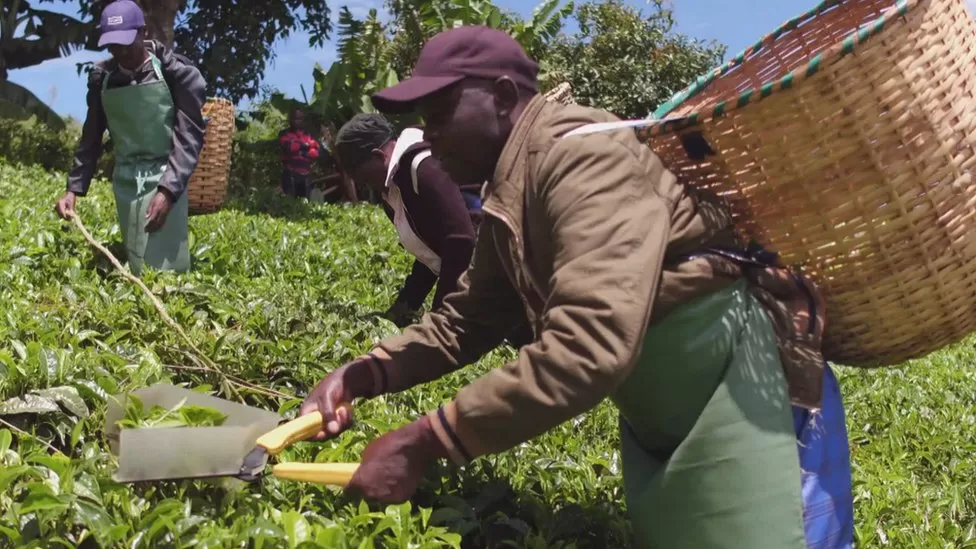A Scottish court has ruled that a group of Kenyan farm workers can continue with a multi-million pound damages case against a major global tea firm.
Up to 2,000 employees claim they suffered injuries due to working conditions at James Finlay Kenya Ltd.
JFK, which has its registered address in Aberdeen, denies the claims and argues the case should not be heard in a Scottish court.
But on Tuesday a Court of Session judge ruled the class action could go ahead.
Lord Weir said the Scottish court does have jurisdiction to consider the case and said he was confident it would be fully instructed on matters of Kenyan law which are likely to arise.
The company had argued it has no connection to Scotland, other than its historical registered address, and that the claims should be dealt with in Kenya.
- Court won’t understand Kenyan culture – tea firm
- True cost of our tea: Sexual abuse on Kenyan tea farms revealed
However lawyers for the employees believe that because the firm is registered in Scotland, the Court of Session can deal with the matter.
They want compensation from the business as they say bosses there didn’t do enough to prevent them from suffering debilitating workplace injuries.
The Finlays group, founded in Aberdeen in 1750, is one of the world’s biggest producers of tea and coffee and includes Starbucks among its customers.
It operates on five continents and can trace its origins back to James Finlay, a cotton merchant who founded the business in Scotland in 1750.
‘Musculoskeletal injuries’
Many of the workers claim they suffered “musculoskeletal injuries” because of working conditions at JFK.
At a previous hearing the court heard claims that the pickers were routinely asked to work up to 12 hours a day without a break, for six days a week, earning in 2017 an average monthly wage of £100.
The hearing also heard evidence that pickers had to harvest a minimum of 30kg (4st 10lb) of tea to be paid anything at all.
A lawyer for the workers said the ruling was hugely significant.
Patrick McGuire, a partner at Thompsons Solicitors, said: “It is almost impossible to overstate the importance of today’s judgment. It is an historic day in Scots Law.
“It serves as a stark message to every company based in Scotland that they must take their employees’ safety seriously no matter where they work work around the world.
“The court has spoken – if you choose to set your company up in Scotland then the Scottish Courts will follow you wherever you operate.”
Mr McGuire claimed the firm played “every trick in the book to evade responsibility” and urged them to now pay “fair and just compensation” to the workers.
Finlays maintained the company was “legally established” in Kenya and added it was therefore “bound” by Kenyan constitution and laws.
A spokesperson added: “We believe that the proper place to address allegations brought by Kenyan citizens regarding their employment in Kenya is in the Kenyan Courts.”
The company said it would review the Court of Session ruling before deciding the “appropriate” next steps.
